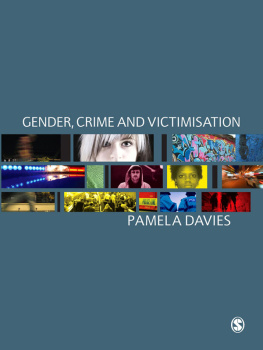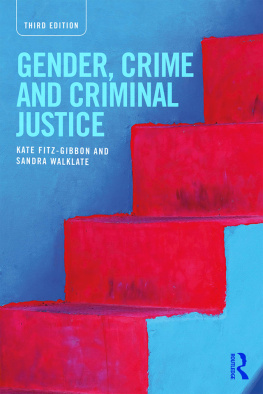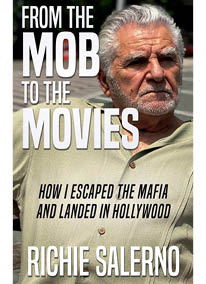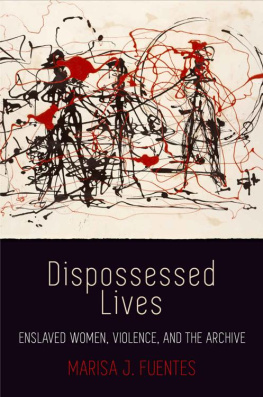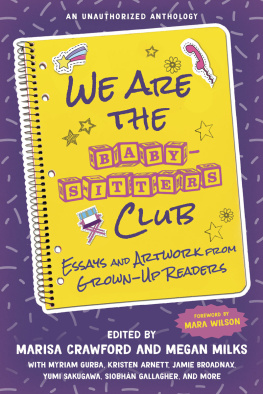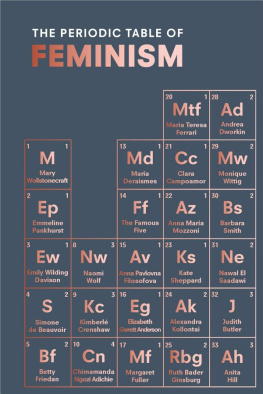SAGE Publications Ltd
1 Olivers Yard
55 City Road
London EC1Y 1SP
SAGE Publications Inc.
2455 Teller Road
Thousand Oaks, California 91320
SAGE Publications India Pvt Ltd
B 1/I 1 Mohan Cooperative Industrial Area
Mathura Road
New Delhi 110 044
SAGE Publications Asia-Pacific Pte Ltd
3 Church Street
#10-04 Samsung Hub
Singapore 049483
Marisa Silvestri and Chris Crowther-Dowey 2016
First edition published 2008. Reprinted 2014
This edition first published 2016
Apart from any fair dealing for the purposes of research or private study, or criticism or review, as permitted under the Copyright, Designs and Patents Act, 1988, this publication may be reproduced, stored or transmitted in any form, or by any means, only with the prior permission in writing of the publishers, or in the case of reprographic reproduction, in accordance with the terms of licences issued by the Copyright Licensing Agency. Enquiries concerning reproduction outside those terms should be sent to the publishers.
Library of Congress Control Number: 2015951591
British Library Cataloguing in Publication data
A catalogue record for this book is available from the British Library
ISBN 978-1-4739-0218-3
ISBN 978-1-4739-0219-0 (pbk)
Editor: Amy Jarrold
Assistant editor: George Knowles
Production editor: Katie Forsythe
Copyeditor: Christine Bitten
Indexer: Silvia Benvenuto
Marketing manager: Sally Ransom
Cover design: Wendy Scott
Typeset by: C&M Digitals (P) Ltd, Chennai, India
Printed and bound by CPI Group (UK) Ltd, Croydon, CR0 4YY
About the Authors
Marisa Silvestriis an Associate Professor in Criminology at Kingston University. Her main research interests lie at the intersections of policing, gender and criminal justice. More specifically her work centres on exploring the position and role of women in police leadership and the gendered nature of the criminal justice system in relation to its impact on women offenders and victims. As a strong advocate of participatory action research with an emphasis on practitioner involvement, her work not only advances theoretical understandings of these issues but aims to inform policy and practice. She has published extensively in the field, including
Women in Charge: Policing, Gender and Leadership (2003, Willan) and Gender and crime in the
Oxford Handbook of Criminology (co-authored with Frances Heidensohn; 2012, Oxford University Press). She is also an editorial board member for
Policing & Society and is currently working on exploring the gendered impacts of the current police reform agenda on the selection of its chief officers, together with an analysis of the gendered nature of language within policing.Chris Crowther-Doweyteaches Criminology at Nottingham Trent University and has considerable experience of teaching criminology and criminal justice at all levels of study. He currently teaches
Gender, Crime and Criminal Justice and
Policing. His research interests include policing and policy interventions targeting gendered violence and abuse. Crowther-Doweys criminology teaching is interdisciplinary and attempts to synthesize material from a range of academic disciplines in the social sciences, political sciences and the humanities. His recent publications include:
Researching Crime: Approaches, Methods and Application (co-authored with Pete Fussey; 2013, Palgrave);
Understanding Modernisation in Criminal Justice (co-authored with Paul Senior and Matt Long; 2007, Open University Press);
An Introduction to Criminology and Criminal Justice (2007, Palgrave).
Acknowledgements
We owe a great many thanks to a number of people during the undertaking of this book. The original concept of the book owes much to existing works on gender, crime and social justice. A great number of feminist writers have worked relentlessly to expose the ongoing gendered and discriminatory nature of social justice. These works have had an important impact on our motivations to write this book, encouraging us to be ever vigilant of claims that things are equal now. We hope that this book balances realism with optimism on the issues explored.
As a joint project, we would firstly like to salute each other. Borne out of a friendship developed some years ago, working together on this second edition has been an effortless project, which we have enjoyed enormously.
We are grateful to Yvonne Jewkes (Series Editor) for commissioning us to write the first edition of this book and for inviting us to undertake this second edition. We also thank everyone at Sage with whom we have worked, but especially to Natalie Aguilera, Amy Jarrold and George Knowles for their patience and support in seeing this book to fruition. Thanks also to the anonymous reviewers of the book proposal who provided challenging yet constructive comments and we hope that we have responded as much as possible to their recommendations. Needless to say we are both responsible for any errors or omissions.
We are both indebted to a wide range of academic colleagues, friends and the many students we have taught. In particular, Marisa would like to thank Frances Heidensohn for being a truly inspirational pioneer in the field providing intellectual support and guidance, sharing ideas, networks and contacts freely and for her friendship over the years. Especial thanks also to dear friend Cait Beaumont for after-work drinks full of straight talking, no-nonsense advice in all things that matter and a salute to long-standing and loyal colleagues and friends, Steve Tong, Roger Matthews, Richard Wild, Carol Williams, Brian Clark, Chris Gifford and Robert Cook, who have provided support, friendship, humour and distraction over the years.
Chris is grateful to Paul Senior and Matt Long for some of the ideas the three of them developed in another project, which have proved to be useful here. At work he has enjoyed working with, and appreciates the friendship and support provided by, Azrini Wahidin and Terry Gillespie. Many thanks to his old friends, whom he sees less often than he would like to. He apologizes for missing too many football and cricket matches and gigs. Also, he appreciates the distraction provided by newer friends, especially Sandy Partridge and Paul Wynne (and all of Derby Soul) as well as John Poole and Steve Hay who have both taught him a lot about music. Apologies to Rosie, but more time and attention will come your way now this project is out of the way.







